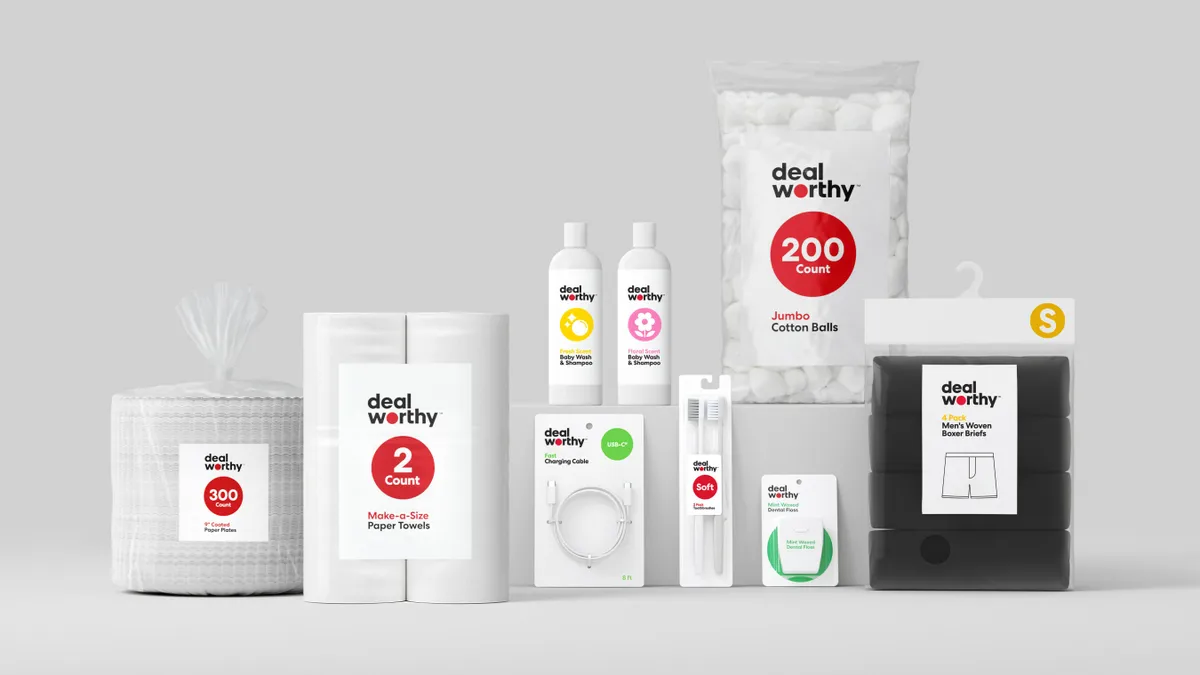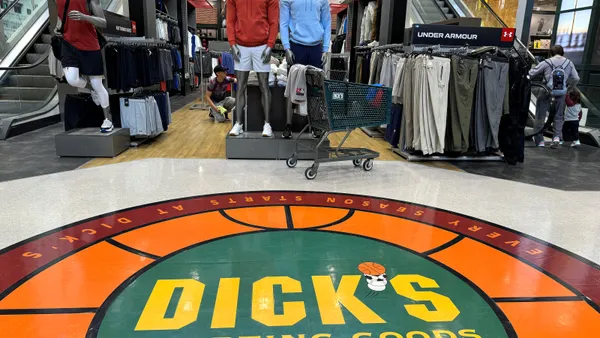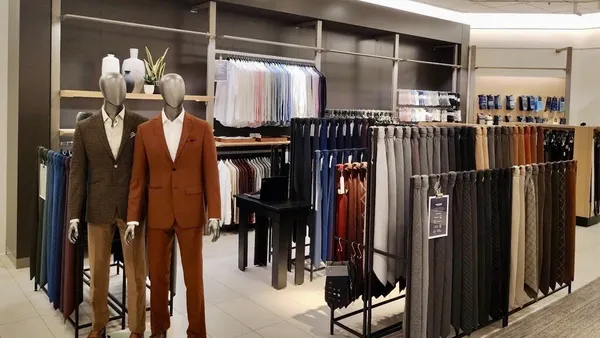Dive Brief:
- Nearly all (99.9%) U.S. households purchased at least one private label grocery item in the past 12 months, followed by health and beauty (99.2%), household products (98.9%) and home and garden (97.6%), according to a private label trend report from Numerator.
- Newly launched private-label offerings from Target and Walmart, including Target’s Dealworthy brand and Walmart’s Bettergoods, are gaining traction. Dealworthy and Bettergoods were the year’s two fastest growing private label brands, per the report, with the owned brands netting purchases from 6% and 9% of U.S. households, respectively.
- Private label accounted for the biggest share of sales at club retailers (33.9%), followed by mass (28.5%), office (28.3%), home improvement (27.9%) and pet (25.7%). Beauty and electronics stores saw 10% or less of unit volume coming from owned brand products, per the report.
Dive Insight:
Private labels continue to resonate with budget-conscious consumers who are looking for ways to save, including new offerings from the likes of Walmart and Target.
The private label share in many retail categories was relatively unchanged from a year ago or decreased, with home and garden (-3.9%) seeing the largest decline. Grocery items, however, saw an increase of 0.4% and some of the major private label sellers are grocery stores, according to Numerator. The majority of sales at both Aldi (80%) and Trader Joe’s (70%), for example, came from private label products in the past year. Conversely, private label accounts for just 3% of Amazon’s sales volume.
Private label shows no signs of slowing down in the food industry. According to FMI — the Food Industry Association’s Power of Private Brands report from June, almost half (46%) of shoppers surveyed said they planned to buy somewhat or much more private label in the next year compared with 27% who said the same for name brands. Some 55% of shoppers said they had bought more private label items in the past year compared with 28% who said they had purchased more name brands than the previous year.
According to a report from Circana, total U.S. sales of private label brands increased 6% year over year in 2023 to $217 billion. Private label unit sales, however, increased just 0.9%, per the report. While total sales of national brands far exceeded that of private label store brands ($472 billion versus $121 billion) in the first half of the year, the pace of private label sales growth was stronger, with dollar sales up 2.3% and unit sales growing 2.5%. National brands recorded a gain of 1.1% for dollar sales while units dropped 0.8%.













